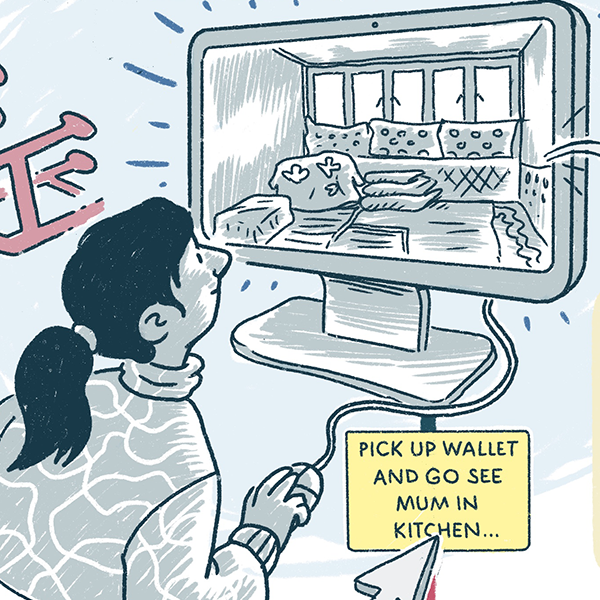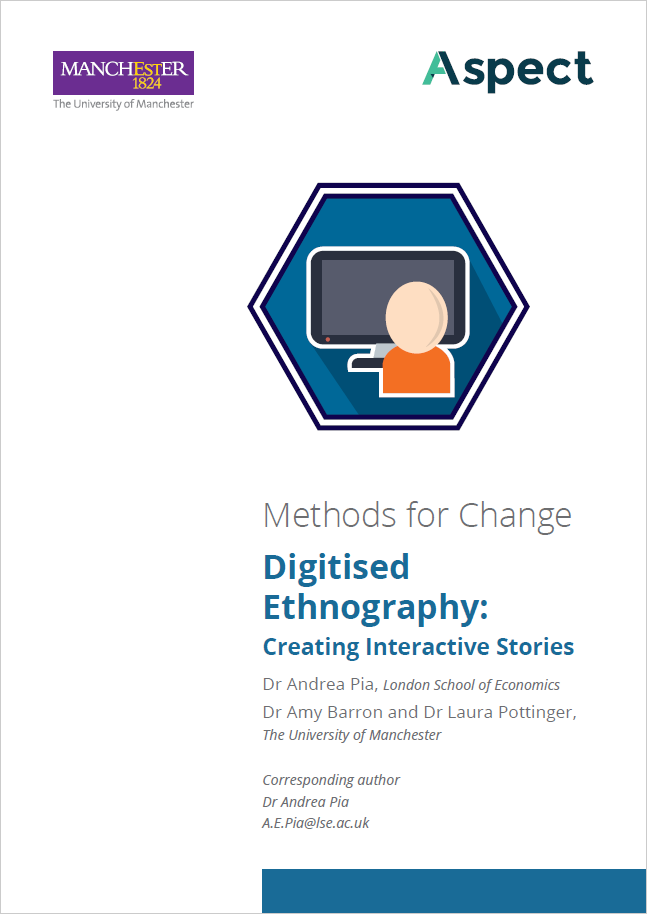Research Method: Digitised Ethnography Creating Interactive Stories
This guide looks at how to translate material generated through traditional ethnography into digital forms. Digital Ethnography is usually used to describe research that is conducted solely online – through social platforms, websites and in chat forums – with people who we might not otherwise be able to meet in person. A traditional ethnographer might have to travel to another part of the world to carry out their research. Digital Ethnographers travel through the internet to their field site or to explore and immerse themselves within particular communities. Instead of relying on video cameras, tape recorders and their notepad, Digital Ethnographers rely on a virtual set of methods such as web archives, blogs and servers. To learn more about Digital Ethnography as it is traditionally used in the social sciences, the following may be of use: The Drax Files: World Makers [Episode 31: Tom Boellstorff] and Digital Anthropology. Digital Ethnography is used in this guide to describe something slightly different to the above.
Digitised Ethnography describes the transformation of a piece of ethnographic research into a digital output. For example, instead of, or as well as, writing a book or article to share the findings of a traditional ethnographic study, a video game or interactive story might be created instead. While video games allow you to win, or to play against them or an opponent, interactive stories, which are the focus of this guide, are primarily about discovering. In Digitised Ethnography, the player is put in someone else’s shoes. This person is usually a key interlocutor, and could be someone known by the author of the ethnography, or the ethnographer themselves. Digitised Ethnographies are usually based on a multiple-choice mechanism, which transforms the traditional ethnographic narrative into an interactive text. By interacting with other characters through multiple-choice dialogue, the player experiences the challenges and contradictions of lives they have never lived or may never even have imagined to exist. The player makes choices throughout the game that will determine the places, people and ethnographic themes they will eventually encounter. Digitised Ethnographies can therefore be used to educate people about the experiences of marginalised groups, or to allow people to understand the world from the perspective of others through an interactive and immersive experience. Moving away from the written word by creating an interactive story means that the research conducted can be translated into different settings and will be able to reach a much wider audience. Digitised Ethnography is therefore motivated to engage different publics, such as students, scholars, civil society practitioners and concerned individuals who may be moved by hearing about the people ethnographers work with.
Click here to view the full size image on imgur
You can find all the research outputs from the Methods for Change series here






